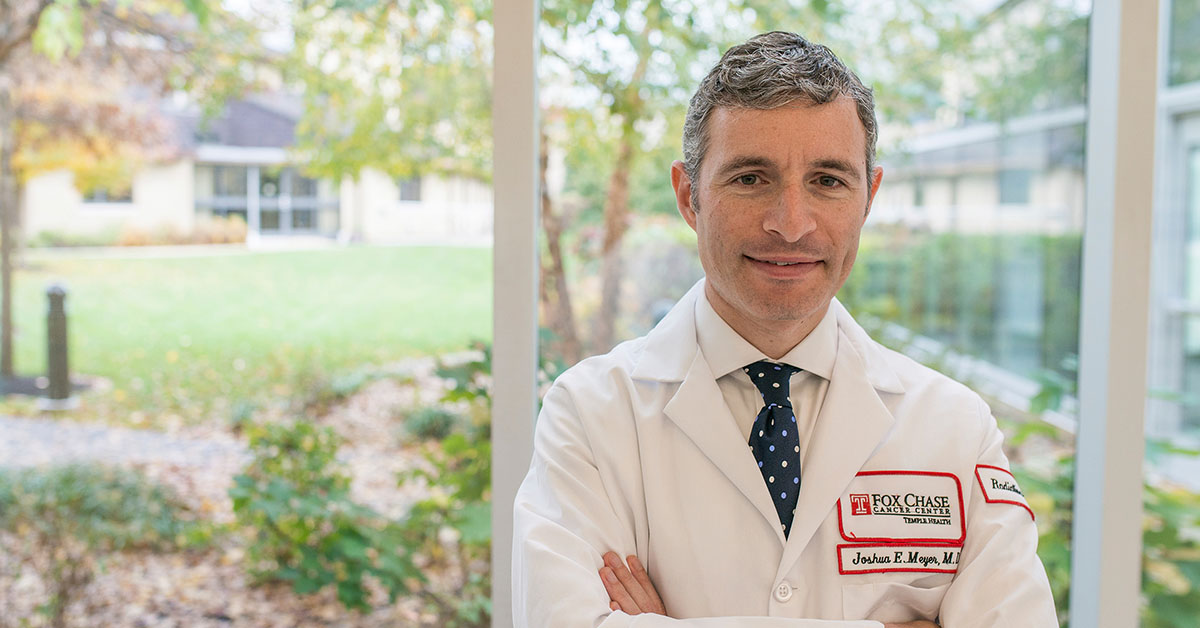
PHILADELPHIA (October 24, 2021)—In a recent retrospective study, researchers at Fox Chase Cancer Center found anorectal cancer patients reirradiated with pulsed low-dose-rate radiotherapy had reduced toxicity and improved outcomes when compared with patients treated with twice-daily radiotherapy.
The study, “Comparing Toxicity and Outcomes Between Twice-Daily (BID) Versus Pulsed Low-Dose Rate (PLDR) Radiotherapy (RT) for Reirradiation of Anorectal Cancers,” was presented today during a poster session at the American Society for Radiation Oncology (ASTRO) 2021 Annual Meeting in Chicago.
“When we irradiate patients, if we have to do radiation again it can be difficult given that each organ can only tolerate a certain amount of radiation dose. Sometimes, however, it’s necessary if a patient has a recurrence of cancer,” said Aneesh K. Pirlamarla, MD, lead author on the study and second year resident in the Department of Radiation Oncology at Fox Chase.
Currently, twice-daily radiotherapy is a standard regimen for rectal cancer recurrence. This method of administering radiation therapy is done by turning on the beam and applying two continuous fractions of radiation administered at least six hours apart.
Pulsed low-dose-rate radiotherapy administers the same dose over a longer period of time by turning the beam on and off. This type of therapy has shown promising results based on previous phase 1 studies done by Joshua E. Meyer, MD, vice chair of translational research in the Department of Radiation Oncology at Fox Chase.
“The hypothesis is that pulsed low-dose-rate radiotherapy is safer and easier to tolerate, which Dr. Meyer’s study demonstrated. This method is also potentially more effective,” said Pirlamarla. “The way we hoped it would work is that by delivering the same dose of radiation slowly, it would lead to sub-lethal damage and over time the tumors would be impacted more than healthy tissue. It makes use of poor repair mechanisms by the tumor cells.”
The retrospective review included 26 patients, 24 of whom had rectal cancer and two with anal cancer. The median age of participating patients was 59. Results indicated that pulsed low-dose-rate reirradiation of anorectal cancers may demonstrate a significant improvement in incidence and severity of toxicity compared to twice daily reirradiation. Additionally, this improvement is possible without compromising local progression-free survival.
“We did this study not really knowing what it would show. So the fact that there’s a reduction in these anorectal cancer patients, there’s a significant reduction in gastrointestinal toxicity and genitourinary toxicity, was surprising,” said Pirlamarla.
“With a recurrence, treatment options can become limited in a lot of cases, especially treatment options that patients can tolerate well. What this offers is a safe, well-tolerated treatment that can reduce toxicity while still providing a good outcome.”